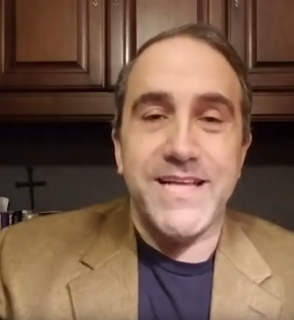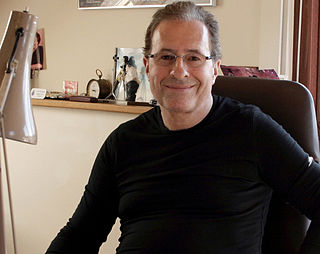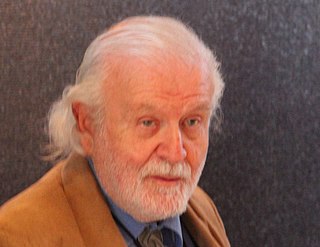Top 1200 Carbon Emissions Quotes & Sayings - Page 20
Explore popular Carbon Emissions quotes.
Last updated on April 15, 2025.
Is there some magic wand they can wave on it and presto! - physics is overturned and carbon dioxide doesn't trap heat anymore? And when we see all these things happening on the Earth itself, what in the hell do they think is causing it? The scientists have long held that the evidence in their considered word is "unequivocal," which has been endorsed by every national academy of science in every major country in the entire world.
[W]hen we look at the graphs of rising ocean temperatures, rising carbon dioxide in the atmosphere and so on, we know that they are climbing far more steeply than can be accounted for by the natural oscillation of the weather ... What people (must) do is to change their behavior and their attitudes ... If we do care about our grandchildren then we have to do something, and we have to demand that our governments do something.
Carbon dioxide is unusual because it doesn't go through the usual three phases of matter, from solid to liquid to gas, but it goes straight from solid to gas. The volume of the gas is much greater than the volume of the solid. When a solid turns into a gas, we say it sublimes. The process is sublimation.
These proven positive consequences of elevated CO2 are infinitely more important than the unsubstantiated predictions of apocalypse that are hypothesized to result from global warming, which itself, may not be occurring from rising atmospheric CO2 levels. The aerial fertilization effect of atmospheric CO2 enrichment is the only aspect of global environmental change about which we can be certain; and to restrict CO2 emissions is to assuredly deny the biosphere the many benefits that accrue from this phenomenon.
The simplest way to remove carbon dioxide, the main greenhouse gas, is to grow plants - preferably trees, since they tie up more of the gas in cellulose, meaning it will not return to the air within a season or two. Plants build themselves out of air and water, taking only a tiny fraction of their mass from the soil.
Now, we put out a lot of carbon dioxide every year, over 26 billion tons. For each American, it's about 20 tons. For people in poor countries, it's less than one ton. It's an average of about five tons for everyone on the planet. And, somehow, we have to make changes that will bring that down to zero.
There's no huge mystery. If you dig up huge amounts of carbon, huge amounts of ancient biology, hundreds of millions of year's worth of ancient biology, and flush it into the atmosphere in a matter of decades, then it stands to reason that we're going to have enormous effects, and now we can see those effects all around us.
Until we fully understand what turned two brothers who allegedly perpetrated the Boston Marathon bombings into murderers, it is hard to make any policy recommendation other than this: We need to redouble our efforts to make America stronger and healthier so it remains a vibrant counterexample to whatever bigoted ideology may have gripped these young men....And the best place to start is with a carbon tax.
Actually, climate change is really about the wellbeing of people. It is not a very vague concept or a vague problem that is out of our everyday lives. It is actually affecting our everyday lives, and this is the fundamental fact that everybody should keep in mind while working toward a low-carbon society.
It just so happens that the green religion is now taking over from the Christian religion. I don't think people have noticed that, but it's got all the sort of terms that religions use. The greens use guilt. That just shows how religious greens are. You can't win people round by saying they are guilty for putting (carbon dioxide) in the air.
But to truly transform our economy, protect our security, and save our planet from the ravages of climate change, we need to ultimately make clean, renewable energy the profitable kind of energy. So I ask this Congress to send me legislation that places a market-based cap on carbon pollution and drives the production of more renewable energy in America.
Remember that the problem is bigger than the car you drive or the types of lightbulbs in city hall. We need a fundamental shift away from dirty fossil fuels that spew carbon pollution. To make that happen, we need to put pressure on our leaders to take the bold actions necessary to move us off dirty sources of energy.
It just so happens that the green religion is now taking over from the Christian religion. I don't think people have noticed that, but it's got all the sort of terms that religions use... The greens use guilt. That just shows how religious greens are. You can't win people round by saying they are guilty for putting (carbon dioxide) in the air.
I like my house to be unique to me. Sure, I've bought plenty of things out of a catalog, but the way I put them together in my home is special. You might have bought your sofa at a major home decorating store, but the rug you found at the flea market is so unique, it takes your room from 'carbon copy' to 'simply yours' in no time.
Brothers and Sisters: Our ancient homeland is spotted today with an array of chemical dumps. Along the Niagara River, dioxin, a particularly deadly substance, threatens the remaining life there and in the waters which flow from there. Forestry departments spray the surviving forests with powerful insecticides to encourage tourism by people seeking a few days or weeks away from the cities where the air hangs heavy with sulphur and carbon oxides.
My experience as energy and climate change secretary - in the months I spent battling George Osborne over the budget for investment in low carbon, and in the daily attrition with Eric Pickles over onshore wind - was that many Conservatives simply regard their commitment to climate change action as something they had to say to get into power.
I kind of like carbon taxes because we already know how to apply them. We already have apparatus in place. When we talk about these other solutions - like a billion tons of iron filings in the ocean or putting sunshades between us and the sun - they're huge. We have no idea if they will work. We have no idea what their nasty consequences might be. And it's unlikely we can do them anyway.
The question is: do we pay a little bit more now? Or do we pay a whole lot later? For the equivalent of a postage stamp a day for each American, we can put a price on carbon today that will send a signal to private capital to invest in the clean technologies of tomorrow. Taking a vast portfolio of new energy solutions to scale will ultimately drive down costs through competition.
Nevertheless, just as I believe that the Book of Scripture illumines the pathway to God, so I believe that the Book of Nature, with its astonishing details-the blade of grass, the Conus cedonulli, or the resonance levels of the carbon atom-also suggest a God of purpose and a God of design. And I think my belief makes me no less a scientist.
Coal is the moral choice, particularly for the developing world... The model for the world right now should be Australia. Australia gets it. Scientifically they get it, politically they get it and particularly when it comes to the United Nations, they get it. They are pulling out of this, they are repealing their carbon tax and Canada seems to be intrigued by what Australia is doing.
The record-breaking extreme weather events causing chaos across the globe should be a wake-up call. The transition to a low-carbon economy will be much more painful if we wait until there is a climate crisis before recognising that more than half of the world's fossil fuel reserves will have to remain in the ground.
We're full of electricity, and the walls and floor of a building contain carbon - the same makeup as a video tape - and I think we give off a huge amount of energy. Some people are able to see that and pick that up. I think almost every person I've met in my life has had some sort of experience that they can't explain, and those fascinate me.
Mr. Vice President, the most fiscally conservative thing this government has ever done, is to invest massively in the green part of the recovery. Because those green dollars are the hardest working dollars in the history of American politics. That same dollar that is being used to cut energy bills, is also cutting global warming gas emissions, is also cutting unemployment, is also cutting poverty, through retrofits it's also raising the value of homes, is also by cleaning the air, cutting asthma rates.
There is no significant man-made global warming at this time, there has been none in the past and there is no reason to fear any in the future. Efforts to prove the theory that carbon dioxide is a significant 'greenhouse' gas and pollutant causing significant warming or weather effects have failed. There has been no warming over 18 years.
The poster boy for our superabled future is Oscar Pistorius, an increasingly famous South African sprinter who happens to have had both of his legs amputated below the knee. Using upside down question mark-shaped carbon fiber sprinting prosthetics, called Cheetah blades, Mr. Pistorius can challenge the fastest sprinters in the world.
I don't think you can pump carbon dioxide into the atmosphere indefinitely and not have a reaction. But there are great scientists such as Freeman Dyson, one of the greatest physicists of the last hundred years, who has studied the question, who believes quite the opposite. The reason transnational action is so difficult is because the major problem with climate change is, A, that there is no consensus, and, B, that the economic cost is simply staggering. Reversing it completely might mean undoing the modern industrial economy.
Not wasting energy. It is the least sexy, but the single most important and always the least expensive. You would be very interested in a report by the McKinsey consulting firm that concluded that 40 percent of everything that we have to do to mitigate our emissions are net economic winners. They are cost effective and the most cost effective is not wasting energy. That's actually going to be the largest part of this whole journey, I believe - using less energy with the same beneficial results.
I bargain-shop all the time, but then I started learning about how those products are made and about how if you spend a little bit more money on ethical clothing that are using recycled materials - like, my favorite dresses are by Christy Dawn... the carbon footprint that they're leaving is so minimal, and it's really worth the extra money.
I just can't fathom tweeting, and I'd rather spend my time writing a book than a blog, but I rather grudgingly agreed to a Facebook page. I had a brief, intense romance with Facebook. It's weirdly addictive, but anything that time-sucking is a danger for a writer who writes as slowly as I do. Now I post only occasionally and nothing very confessional. I think I'm carbon dating myself as I speak.
The answer is to end our reliance on carbon-based fuels... If we succeed, we create booming new industries, wealth, clean secure energy and maybe we prevent the greatest disaster so far in human history, saving millions of lives while improving billions more. If we fail, basically it's business as usual while things slowly get worse all around us.
The biggest gains, in terms of decreasing the country's energy bill, the amount of carbon dioxide we put into the atmosphere, and our dependency on foreign oil, will come from energy efficiency and conservation in the next 20 years. Make no doubt about it. That's where everybody who has really thought about the problem thinks the biggest gains can be and should be.
You couldn't be here if stars hadn't exploded, because the elements - the carbon, nitrogen, oxygen, iron, all the things that matter for evolution - weren't created at the beginning of time. They were created in the nuclear furnaces of stars, and the only way they could get into your body is if the stars were kind enough to explode. So, forget Jesus. The stars died so that you could be here today.
Trump has been very, very open and clear on what he's going to do. He's going to make the U.S. very competitive on taxes, corporate and personal. He's eliminating policy on carbon and the regulatory environment on shale and energy and pipeline development. These are all things that Canada has to do and we no longer have a competitive environment to do them in. It manifests itself in the slow grind of our economy.
Ocean acidification - the excess carbon dioxide in the atmosphere that is turning the oceans increasingly acid - is a slow but accelerating impact with consequences that will greatly overshadow all the oil spills put together. The warming trend that is CO2-related will overshadow all the oil spills that have ever occurred put together.
The world's forests need to be seen for what they are - giant global utilities, providing essential public services to humanity on a vast scale. They store carbon, which is lost to the atmosphere when they burn, increasing global warming. The life they support cleans the atmosphere of pollutants and feeds it with moisture. They act as a natural thermostat, helping to regulate our climate and sustain the lives of 1.4 billion of the poorest people on this Earth.
The Environmental Protection Agency's first-ever limits on carbon pollution from power plants will create clean- energy jobs, improve public health, bring greater reliability to our electric power grid, bolster our national security, demonstrate the United States' resolve to combat climate change and maybe even reduce our utility bills.
We need healthy forests if we want to protect our climate. As the climate changes, forests become more vulnerable to insect outbreaks, droughts and wildfires. Simultaneously, when our forests are destroyed, their carbon is released back into the atmosphere, further impacting climate change. It's a horrifying one-two punch.
I am grateful to the fossil fuel industry for bringing us the concentrated carbon that took us through the Industrial Revolution and through the technological revolution and brought us to the gateway of the renewable energy revolution, or what I call the sunlight revolution. But that is where we must part ways. It's the natural order.
Scientists tend to focus on what they don't know more than what they do know. And there are a lot of things we still don't know about the climate. But we know the difference between climate variability and climate change, and right now the amount of carbon in the atmosphere is well outside the variability pattern - and that's quite quantifiable.
Our climate is changing. The Earth's climate has, in fact, warmed by 1.1 to 1.6 degrees Fahrenheit since the industrial revolution. People look at this and say: Oh, that is not very much. In fact, it is very much, and it changes the dynamic. It impacts species. It kills some. It diminishes the carbon sink of the ocean. It does a number of things.
Sure, you can say nuclear power is somewhat less carbon-intensive than burning fossil fuels for energy; beating your children to death with a club will prevent them from getting hit by a car. Ravaging the Earth by one irreparable means is not a sensible way to prevent it from being destroyed by another. There are alternatives. We should choose them and use them.
Meatless Mondays is a dead-simple strategy. Anyone can do it, and it doesn’t require major sacrifice. Even if you eat a typical American diet replete with processed, junk and fast food the other six days of the week, going meatless on Mondays will still cut your carbon footprint, improve your health and reduce demand for factory-farm meat.
Only dramatic cuts in the federal deficit, a rollback of regulations that cripple small and community banks, a cancellation of future tax increase plans, a big reduction in federal spending, repeal of Obamacare, freeing manufacturing from the prospect of carbon taxation and unleashing out domestic energy potential can solve our problems. But Obama is not about to undo his legacy of disaster for the American people.
Coral reefs, the rain forest of the ocean, are home for one-third of the species of the sea. Coral reefs are under stress for several reasons, including warming of the ocean, but especially because of ocean acidification, a direct effect of added carbon dioxide. Ocean life dependent on carbonate shells and skeletons is threatened by dissolution as the ocean becomes more acid.
We're putting more carbon into the atmosphere than the atmosphere can absorb. And everybody told us when we started, coz we knew nothing when we started - we still don't know very much - but everybody told us 'this is crazy, you don't use a scientific data point, it's a number, people don't respond to numbers'.
For electric power generation, we are very optimistic about solar-thermal technology, and we’re intrigued by the potential of enhanced geothermal energy to replace coal-based power generation. Traditional carbon capture and sequestration-based coal power generation is somewhat unlikely to be competitive.
A cap and trade bill will likely increase the costs of electricity. . . . These costs will be passed on to the consumers. But the issue is, how does it actually...how do we interact in terms with the rest of the world? If other countries don't impose a cost on carbon, then we would be at a disadvantage. . . . We should look at considering duties that would offset that cost.
If you really could take the CO2, when you burn hydrocarbons - coal, for example - if you could really capture the carbon and sequester it - they call it CCS - if the extra capital cost, energy cost, and storage costs over time didn't make it super expensive, then that's another path that you could go down.
A carbon tax by itself would make driving more expensive, that's very true. But in exchange for that, there are going to be more jobs, more output, more employment, and more products available. So really, as long as you're going to collect the revenues you're going to collect, you're going to have to trade off one tax for the other.
To make sure we aren't training people for jobs that don't exist, the government should provide companies with loans or loan guarantees. And the government should also directly employ people to do things like coastal restoration, land restoration, reforestation and similar programs that absorb carbon and protect America's beauty.
I do remain optimistic that one day the world will realise that carbon dioxide is more of a friend than an enemy to the earth's flora and fauna, and I do seriously believe that, given the extraordinary complexity of the natural forces controlling our climate, which have done so for millions of years, the only sensible policy response to the natural process of climate change is prudent and cost-effective adaptation.















































